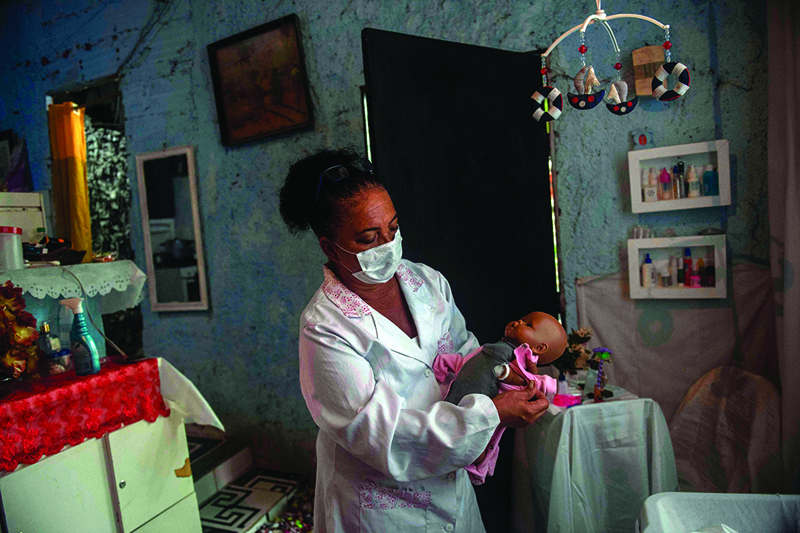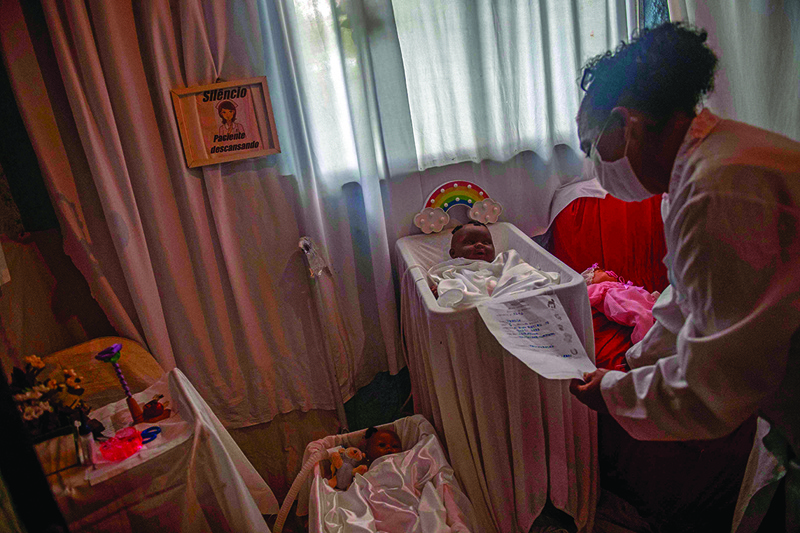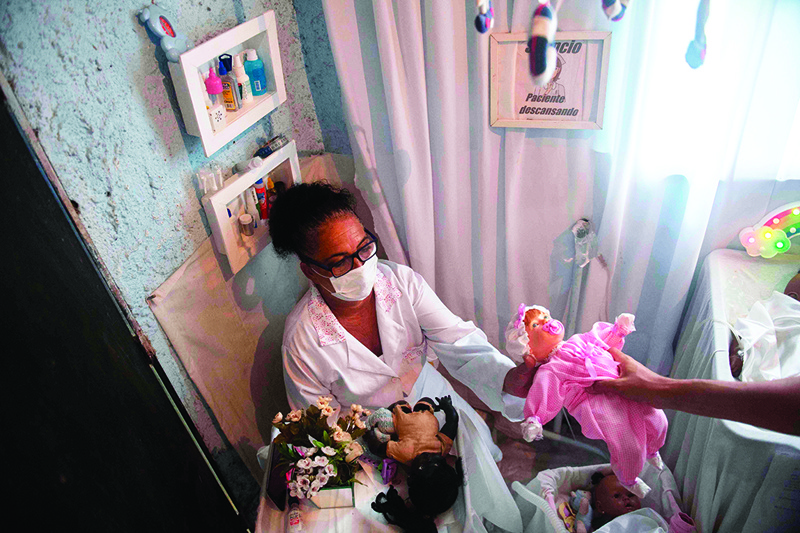
Wearing a traditional white coat and a surgical mask, "Doctor" Suelen da Silva uses a stethoscope to listen to her patient-a black doll that she is healing at her home on a hillside near Rio de Janeiro. Da Silva does not have a medical degree, of course, but the 62-year-old Brazilian certainly has ingenuity and spark. After losing her job as a housekeeper in April at the start of the coronavirus pandemic, she has transformed her hobby into a way to earn a bit of money during hard times. Da Silva, a small woman with a big personality, has created her "lifelike" hospital for dolls in a poor area of Niteroi, which overlooks Guanabara Bay.
If frontline health care workers are the superheroes of the fight against Covid-19, Da Silva is perhaps a worthy sidekick, helping children endure the crisis by healing their ailing toys. The black woman, who wears glasses with thick frames, regularly updates her "clients" with pictures of their recovering dolls via WhatsApp-and a medical chart. The patients at her hospital rest in tiny white beds illuminated with mini multicolored lights.
"I give them updates day after day. The children act like parents whose babies are hospitalized," she tells AFP. "One day, a five-year-old girl was in tears as she left me her doll, and said, 'Make sure she doesn't suffer too much, don't give her too many needle jabs!'" she recalls. Perola is the shabby doll she is currently treating, her legs bent at odd angles. She inserts a thin IV to her wrist with adhesive tape.

Suelen da Silva checks a doll at her 'Doll Hospital' located in her house in Niteroi, Rio de Janeiro state, Brazil. 
Suelen da Silva checks a doll at her 'Doll Hospital' located in her house in Niteroi.
Secret formula
Da Silva started fixing broken dolls when her daughters were little girls-today, they are 35 and 22. "I raised them as a single mother and I never had money to buy them dolls. So I repaired the ones I found in the trash," she explains, adding she also donated refurbished toys to community groups. "But when I lost my job, this became my new job." Da Silva's eldest daughter Lydiane helped get the word out about the hospital via Facebook. "When she told me there had been more than 3,000 views, it scared me a little bit," she said. The unexpected job has allowed Da Silva to make ends meet, even if her income can be "very fluid."
She charges hospital fees starting at five reais (about $1) for minor symptoms-meaning minor repairs-and going up to 70 reais for dolls in a more "critical condition." "In a good week, I get about 20 of them," for stays of three to four days on average, she says. The dolls, which arrive in a variety of states-twisted limbs, bald, some even decapitated-are fixed, pampered a bit, cleaned up and sometimes even given a new outfit made by Da Silva herself. She boasts of a secret formula-a mix of cleaning products-that she uses to wipe away pen marks often believed to be permanent. In a bucket at her home, several dolls are getting a bath to scrub away the unwanted marks.
New hospital on way
But just like many hospitals in Brazil with precarious infrastructure, Da Silva's clinic is at the mercy of Mother Nature. After torrential rainfall the night before, she had to move her hospital from her patio, which was flooded, to a small space near her kitchen in her tiny red home. She dreams of one day being able to open her real hospital, which is being built on land next door and will be bigger. For now, there is only a cornerstone and a pile of red bricks.
She hopes it will eventually be a lovely little spot with a huge window to admire the bay and the view of Christ the Redeemer. "I pray to God that he will help me heal enough dolls so I can finish this construction project," she says, hope glistening in her eyes. - AFP

